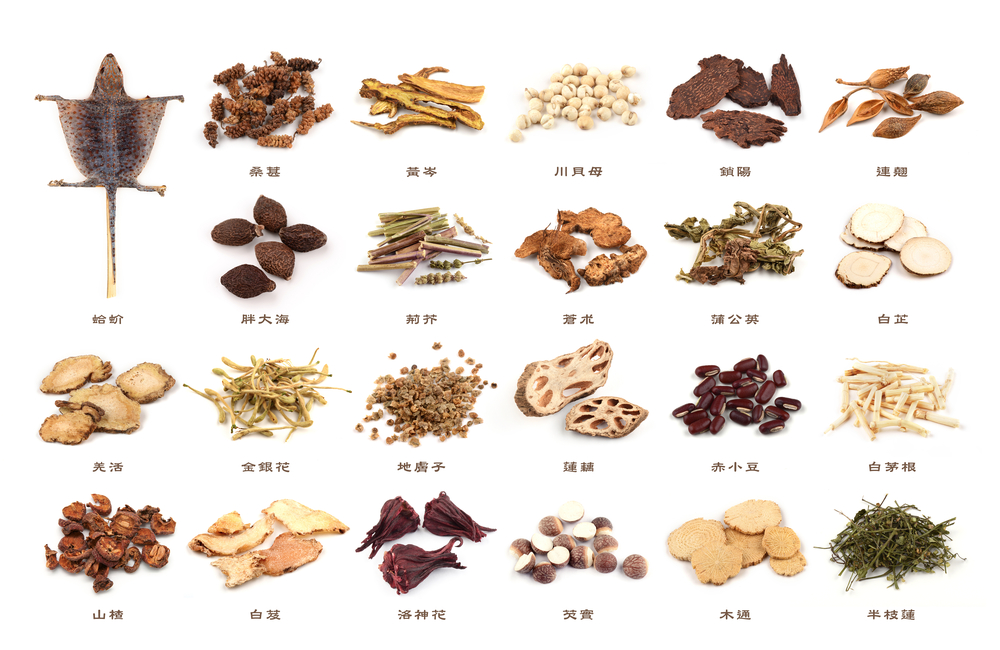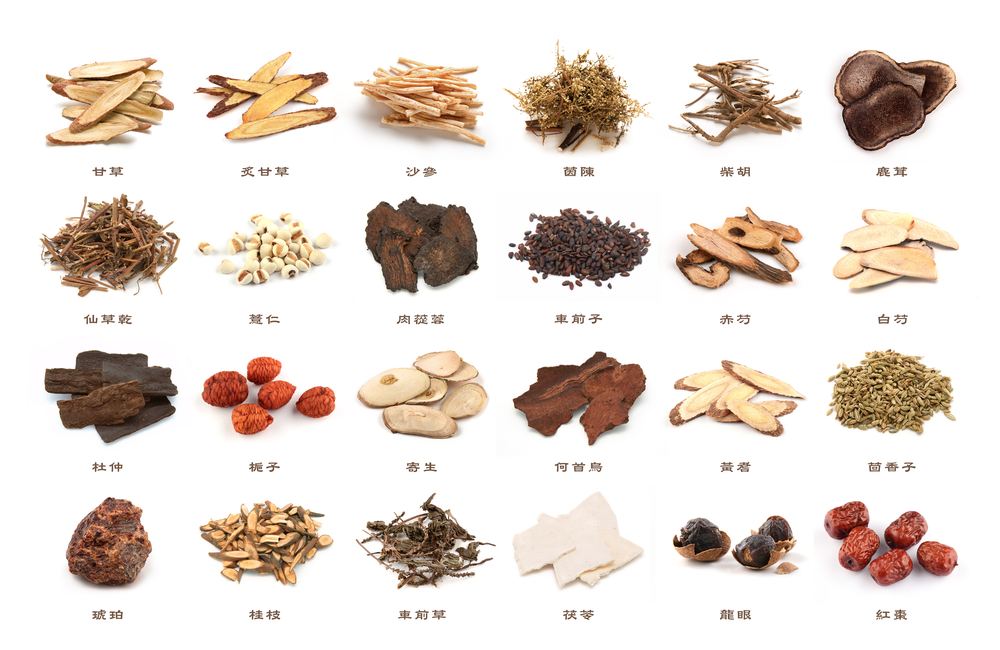
Chinese Herbal Medicine
Herbal medicine is inextricably intertwined with Chinese medicine, providing an indispensable tool for re-establishing balance and improving health. More than 300 herbs are commonly used today with a history of use over 2,000 years. Over that time, a vast amount of experience has been gained toward perfecting their clinical applications. Clinical studies have proven the effectiveness of many single herbs as well as herbal combinations. In many cases, Chinese herbal medicine can improve the effectiveness of pharmaceuticals, reduce their side-effects, and sometimes replace them completely.
Scientists working in China and Japan, over the past four decades, have discovered the active components that can explain their effectiveness. In fact, some modern pharmaceuticals have been developed from herbs, including treatments for asthma and hay fever from Chinese ephedra, hepatitis remedies from schisandra berries & licorice root plus a number of anticancer agents from trees and shrubs.
How do I take the herbs?
In China, the two most common methods of applying herb therapies are to either make a decoction (a strong tea that must be simmered for an hour or more), or to make large, honey-bound pills. Both of these forms meet with considerable resistance in western countries due to taste and convenience. Thus, modern, more acceptable formulas have been developed for most applications.
Extract powders commonly come in smooth, easy-to-swallow tablets or capsules. A large batch of tea is brewed and then dehydrated, producing tiny granules. These can be consumed in capsules, or mixed with hot water to make a tea. Tablets and capsules may contain either powdered herbs, dried extracts, or a combination of the two.
Balancing the convenience, expect to take a substantial quantity of these prepared forms because the herbs are not reduced down to only a few active constituents in a laboratory, as with western drug production. All of the components in an herb are important to balance each other and account for its therapeutic actions. Thus, there is more mass to an herbal formula. For example, doses of the granules range from 1-2 teaspoons each time, two to three times per day. Tablets or capsules range from about 3-8 units each time, two to three times per day.
What about safety and quality?
The Chinese herbal products prescribed at my clinic are from from Evergreen Herbs. Evergreen sets the gold standard in the field for purity, potency, and safety. Every country has a set of manufacturing guidelines known as Good Manufacturing Practice (GMP). There are two types: Food GMP ensures safety; pharmaceutical GMP verifies both safety and potency. While most herbs in the US meet food GMP standards, Evergreen Herbs are unique in that they meet both food and pharmaceutical GMP standards. This means you can trust the herbs are free of pesticides, contaminants, heavy metal pollutants, and additives.
How long will I need to take herbs?
Herbs are prescribed based on the current presentation of a patient, and generally fall into three categories.
The first is treatment of an acute illness, such as a common cold or stomach bug, and typically last 1 – 30 days. For example, if an outbreak of influenza, or eruption of the herpes virus is caught early enough, a short treatment will prevent further development of the disease.
The second category of treatment is for chronic conditions which have persisted for several months or years. The treatment time is dependent on the dosage used, and the patient’s ability to undertake all necessary steps to overcome the disease. When a proper dosage of herbal therapy is applied, most ailments come under control (and some are cured) by a 3 – 6 month treatment duration. The goal of taking herbal medicine is restore homeostasis and strengthen organ function so the body can operate effectively on its own. This is a major difference between Chinese herbal medicine and pharmaceuticals, being that the objective is not to create dependence but to restore the body’s own innate function.
In the third category, herbs are taken for an extended period, just as some pharmaceuticals or supplements are taken daily. This is typically the situation when there are genetic disorders, permanent damage that cannot be entirely reversed or challenges of aging.



